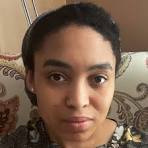Friend of the Week 2023 Week 8
Theme: Freedom of Expression, Imagination, and the Resilience of Democracy
Adria is a lawyer, a Mediator and Clerk of the Earlham School of Religion Board of Advisors

Reflections from a Friend of the Week: Adria Gulizia
I was incredibly blessed to join the beautiful little community surrounding Quaker House at Chautauqua for Week 8: Freedom of Expression, Imagination, and the Resilience of
Democracy. I was invited into the richness of imagination and expression by the dynamism and creativity of Kriss and Gary Miller, whose special gift of welcome includes a warm and gentle invitation into music and the arts, not as an opportunity for virtuosity (though they are incredibly skilled and experienced artists) but as a solicitation to play, to creativity and to community. Together, we crafted cards, we cooked, we talked, and we played music, taking up guitar and drum and ukulele to sing and laugh in community. To be immersed in that space was the very definition of recreation, of making and being remade in a spirit of rest and restoration. Every authentic relationship includes reciprocity, and I was touched by how deeply I was ministered to over the week.
As I received from the abundance of others’ gifts during my time at Chautauqua, I felt privileged to share out of my gifts and ministry with Friends and the broader Chautauqua community. For the last five years, I have been on a path, following the Spirit’s call to lay down my need to be acknowledged as “right” in favor of a commitment to listen deeply to those with whom I disagree, to tenderly hold the hurts of others and to try to speak the truth as I know it, not with defiance or arrogance but with humility and kindness. My experience as a mediator and facilitator is that such a posture helps create a space where people can share with honesty and hear others with compassion. My experience in ministry has shown me that, when people can enter conversation or discernment with their defenses lowered, there is so much more room for the Spirit to move, bringing people out of discord and into unity.
This was my experience at Chautauqua, where I was able to connect with and welcome visitors ranging from born-again Christians to nontheists and pantheists, from our Canadian “Neighbor to the North” to denizens of the Deep South, from under ten years of age to over 90 years of age. During my week, I was able to nuance a conversation by sharing a rural, Black perspective on gun ownership, I was able to be a pastoral presence and sounding board for a mother in distress, I was able to share strategies for speaking across difference at a session of the “Chautauqua Dialogues,” and I was able to receive and share stories in one-on-one and small-group settings. Each person I encountered has a story and is on a path that is precious and unique, and I feel so grateful that our paths crossed at Quaker House. In a world where we are
often so polarized – a world in which we are encouraged to cut off people with “toxic” worldviews and political beliefs, it is profoundly countercultural to seek relationship with, rather than separation from, people we find morally inferior or disordered. But what is God’s grace if not the relentless love of pure goodness for people like us, who so often show ourselves to be neither pure nor good? I believe that Friends are called to embody that grace, especially now, when ideological purity that disowns and de-platforms is often considered a greater form of virtue than a community that welcomes and challenges all to deep listening in the faith that God may speak
at anytime through any person – yes, even through “them.”
With the freedom of my time Chautauqua, I could more comfortably inhabit that way of being, opening up space for authentic and vulnerable conversation with Chautauqua staff, folks in Quaker House and the visitors from around the country who make Chautauqua such a special place. In her lecture during the week, psychologist Pamela Paresky said that the survival of our democracy depends on people willing to express courage in their convictions, compassion and curiosity toward those with different perspectives, and the willingness to stand firm in their own moral foundations while accepting the right of those who reject those foundations to live their
lives. To her, these are some of the “habits of a free mind.” To me, they are part of our calling as Friends. My hope is that we may always encourage one another to be faithful to that calling.
